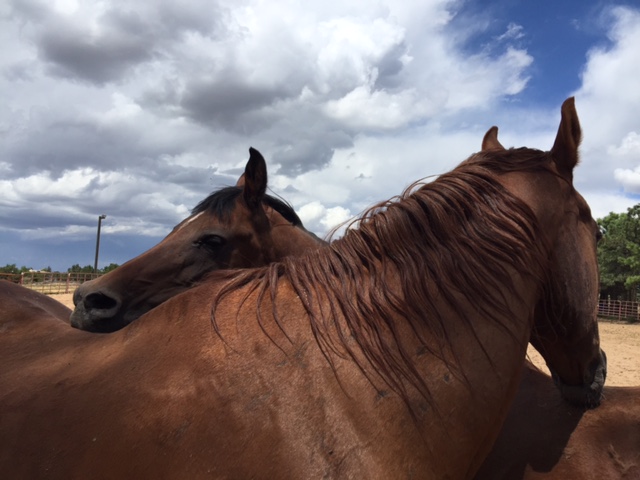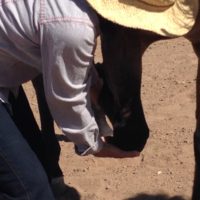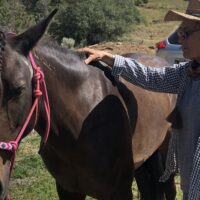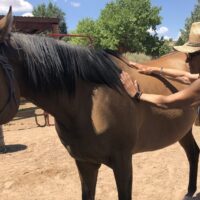Tenets of Equine Health – Part I | July 13th | Tuesday | 4 p.m – 7 p.m. Mountain Time | Zoom Online
$90.00
In this first part of Tenets of Equine Health, we will explore what many veterinarians and practitioners consider the “Triangle of Horse Health” from a bodywork point of view.
Years ago, when I was an endurance rider, I remember the ride vets would tell us, “you know your horse better than anyone.”
With endurance riding, that was probably very true. We watched them eat, tracked their moods and preferences, we were in the saddle for miles and could detect when they were “off” more easily than the vet could in his pre- or post-examination. That education served me well in terms of preparing me to become a bodyworker and to know subtle signs in my horse.
When I don’t know a horse or am not around him or her very often, I rely on the owner to tell me what is going on. The more knowledgeable the owner, the better picture we can create of the horse’s health.
In this first part of Tenets of Equine Health, we will explore what many veterinarians and practitioners consider the “Triangle of Horse Health” from a bodywork point of view. Besides regular veterinary care and exercise, domestic equines require regular support in the following areas:
- nutrition
- hoof care
- dental care
This course is not a replacement for veterinary care, but a complement to it.
Because horses are expensive to maintain, there may be a tendency to skip some of these requirements, though nutrition is one that is usually maintained even with the most minimal care by conscientious horse owners. Still, these are all three linked together.
Even nutrition can be compromised as we don’t always know why a horse may not be metabolizing its food properly and may continue to be underweight in spite of our best efforts. An obese horse becomes susceptible then to other illnesses such as laminitis. Horses who have suffered from food insecurity may have a myriad of problems that need to be unraveled, in addition to careful diet.
A look at the teeth by a veterinary or equine dentist can identify areas where your horse may need work, as she may not be able to chew her food well or have mouth soreness. And did you know, dental neglect can lead to problems elsewhere in the body – along the entire spine, shoulders, in the hocks? All your best efforts with bodywork may not hold if the teeth are causing discomfort.
“No hoof, no horse,” is the common saying. Hoof care is something we often leave to our farrier, however, it is wise to do your own research and understand the mechanics of the hoof, as well as the leg ligament attachments to the hoof and leg joints so you can see the entire apparatus in a more holistic light. Become knowledgeable on what the farrier is proposing for your horse – become an educated consumer!
Understanding what horse health looks like gives owners and equine professionals a better sense of the whole horse, so that you can recognize what might be going on – and what to be concerned about. You may not know more than the professional you call, but you can know your horse – or the one you’re working with – and be on the alert for issues and have some “preventative” understanding to point the process in the right direction.
In this class we will learn some techniques and skills to use to support horses in the meantime, before veterinary, dental, or farrier help and afterwards.
This class may be valuable for Owners –
- Those who board their horses
- Have just bought a horse for the first time
- Just want additional knowledge
- Don’t have a horse but are interested
Equine Professionals:
- Bodyworkers, animal communicators or interested parties
- Those who want to increase their understanding of influencers of horse health
- A program requirement for the Equine Body Balance Practitioner Program
Class is three hours Zoom time – includes videos, charts, photos and outline.
July 13th, 4 p.m. – 7 p.m. Mountain Time. Zoom will make adjustments for other time zones.







Reviews
There are no reviews yet.